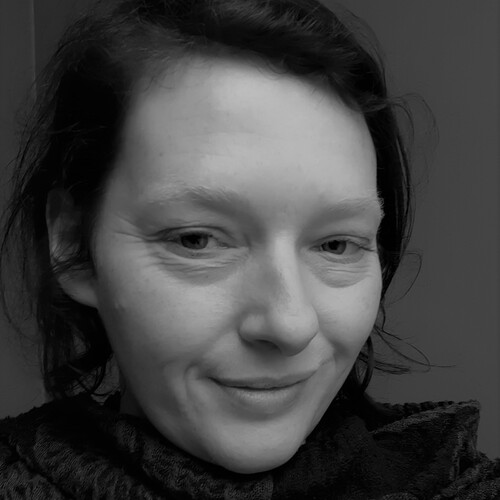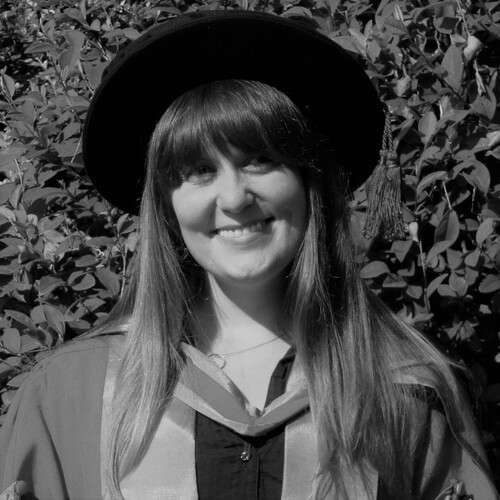Chair
Wiebke Hemmerling
Serial Supplements. On Journalistic Information Policy in the 18th Century
Abstract
Finding those passages in 18th century journals which, beyond the prefaces, elucidate programmatics, news distribution channels and infrastructure, was left to chance for a long time. Entering the digital age greatly elevated the options for a successful search. In many cases it is now difficult to keep track of the number of hits.
The research database »Scholarly Journals and Newspapers in the Age of Enlightenment« offers systematic access to these editorial communications, providing important insights for understanding how periodicals were organized.
On the basis of these announcements, it is possible to answer questions about distribution, by means of newspaper expeditions, post offices and booksellers, questions about financing and questions about interaction with recipients and potential contributors.
In addition, the utility of information is also discussed, especially with regard to the large number of submissions. This apparently gave rise to the fact that the journals had to position themselves more precisely within the journal landscape and either refused to print or provided special formats for surplus news. While the scholarly journals had opened up a space in which it was possible to participate in scientific developments even far from the geographical manifestation of scholarly institutions, occasionally, for purely quantitative reasons, one was forced to open up further spaces. The resulting supplements were subject to a distinct information policy and a separate programmatic.
The aim of the study is the qualitative analysis of editorial communications recorded in the database, with a special focus on the publication conditions of supplements as a specific serial format that can be regarded as a saturation symptom of the news market.

Wiebke Hemmerling
Wiebke Hemmerling is a a research assistant at the Göttingen Academy of Sciences and Humanities in the project »Scholarly Journals and Newspapers in the Age of Enlightenment«.
Monday, 14th June 2021 at 17.00 CEST (UTC+2)
Mary Chadwick
Time and Space, Print and Script: Eighteenth-Century Manuscript Magazines
Abstract
In January 1783 the family and guests of Sir Watkin Williams Wynn of Wynnstay in north Wales were entertained by the production and circulation of a run of ten manuscript periodicals entitled The Breakfast Courant, or, the Bread and Butter Chronicle. Drawing explicitly on Addisonian models of seventy years earlier and clearly mimicking the »periodical life cycle« (Powell, 2012) and self-reflexive conventions of their print predecessors, these sources combine original essays, »Theatrical News« relating to the Shakespearean plays staged in the theatre at Wynnstay, gossip presented in a variety of formats and genres, and poetry. Although a number of hands appear in the pages of the Breakfast Courant, the bulk of the content appears to be the work of a single author, the (currently anonymous) »Reverend Editor«.
I explore the various and elastic depictions, overt and more subtle, of time and space within these sources. Temporally, they combine representations of the pressure of literary production in a small timeframe with demonstrations of the longevity of print texts by Shakespeare, Addison and Swift, and stereotypically Welsh deployments of centuries of history. Spatially, the author-editor’s consciousness of his very localised audience ensures that these texts reflect and reproduce a community which, compared to the readership of print periodicals, was small and confined. Simultaneously, however, his and his readers’ horizons are shown to stretch from Wales to Ireland, France, Gibraltar and Russia, albeit in ways which repeatedly reproduce cultural hierarchies in which Anglophone Britons are privileged.
As products of their time, these sources are marked by elitism, sexism and xenophobia, but they offer an invaluable and, in the context of eighteenth-century studies, virtually unique opportunity to examine the formation, structure and content of a periodical in relation to a very particular spatiotemporal setting.

Mary Chadwick
Mary Chadwick is Research Fellow on the Leverhulme-funded project »Autobiographical Acts in Seventeenth-Century England, Scotland, Wales and New England«.
Monday, 14th June 2021 at 17.00 CEST (UTC+2)
Richard B. Apgar
Gathering a Nation: Journal von und für Deutschland as Precarious Network
Abstract
In his May 1783 announcement for Journal von und für Deutschland (1784-1792), Leopold Friedrich von Goeckingk wrote, »in London fließen die Nachrichten aus allen drey Königreichen ungesucht zusammen.« In this formulation, circulation is a force that brings material for publication together like water flowing to a drain. »Ungesucht,« news streams from the three kingdoms and makes itself available for dissemination. Not unlike Latour’s notion of a »center of calculation,« London sits as hub of Goeckingk’s spatial concept. However, »das kann niemals der Fall in Deutschland seyn.« Since its political condition (»in so viele abgesonderten Staaten«) reduces exchange (»Handel«) and association (»Verkehr«) between regions such that they know »wenig oder gar nichts von einander,« Germany, Goeckingk claims, requires a publication to function as this center. Where London ostensibly forms a natural gathering point, Goeckingk’s Journal collects material generated by correspondents scattered across the geographic space named in the title. In the movement of news and information across this simultaneously geographic and aspirational concept, the Journal implicitly forms a precarious network, to invoke Anne Fuchs recent work, which seeks to replicate the center London represents. Envisioning a moment »in der Folge« when »künftig in Deutschland nicht viel Merkwürdiges« might occur, »wovon in diesem Journale nicht einige Nachricht ertheilt werden sollte,« reveals both the stunning breadth and the uncertain temporal span of this project.
As a case study of the transformational potential and pragmatic limitations of the periodical medium, my discussion examines Journal von und für Deutschland as a precarious network challenged by the borders and regional variations it sought to span.

Richard B. Apgar
Richard B. Apgar is Associate Professor of German at the University of the South in Sewanee, Tennessee.
Monday, 14th June 2021 at 17.00 CEST (UTC+2)
Andreas Golob
Commerce – Competition – Crime: Approaches towards the Dark Side of the Late Eighteenth-Century Newspaper Business in Central Europe
Abstract
Socio-economic insights into the book trade and the news business have recently stressed commercial facets of the production and distribution of printed matter of all kind. Within this perspective, especially unauthorised reprints which were produced in legions have been presented as the more or less moral margin between good and bad practise in a time when copyright did not exist or was clumsily developing at best. Whereas this so to speak ‘phoney crime’ was regularly thematised by authors, editors, printers and last but not least by researchers, we could discover much more ‘real’, yet also unpunished crime, as I will argue on the basis of paratextual evidence in two leading newspapers of the Habsburg Monarchy.
Both editors, Michael Hermann Ambros (1750–1809) who published Graz Peasant News (Grazer Bauernzeitung, 1786–1796), and Moritz Flavius Trenck von Tonder (1746–1810) who is (in)famous for his Political Conversations of the Dead (Politische Gespräche der Todten, 1786–1810), were confronted with private denunciations and official censorship. Quite often the former alluded to offences which should be actually sanctioned by the latter. Trenck von Tonder even opened his advertisement section for threatening letters at the end of the 1780s and made money out of this medialisation of a filthy form of (a)social communication. Finally, towards the ends of quarters, half years and years, when publishers fought for subscribers, economic espionage and white-collar crime soared, as Ambros revealed in particular by documenting theft of readers’ addresses and fake advertisements of his popular newspaper.
Selected examples will show, how the communication circuit of the newspapers itself negotiated almost all these cases – without employing lawyers or resorting to censorship authorities. On this basis, I will propose that the paratexts of newspapers might be interpreted as some sort of an informal, self-regulating and – very often – satirical law court.

Andreas Golob
Andreas Golob is a postdoctoral research fellow at Graz University (Austria) where he recently completed the project “Participatory Journalism in Michael Hermann Ambros’ Periodical Media” supported by the Austrian Science Fund (2017–2020). He is also associated with the transdisciplinary doctoral programme “Collecting, Classifying, Communicating. Cultures of Knowledge in the 18th Century” based at the University of Graz.
Monday, 14th June 2021 at 17.00 CEST (UTC+2)
Discussion
You are invited to discuss the papers in this section in advance of the live Q&A Session using the comment function below. Please make sure to indicate which paper you wish to comment on.


Vielen Dank für diesen informativen und kenntnisreichen Beitrag zu Serial Supplements! Die Bedeutung der Beilagen für die Periodika dieser Zeit kann nicht genügend betont werden. Es freut mich, dass dieser Aspekt der Zeitschriftenproduktion hier mit einer sonst seltenen Klarheit zur Sprache gekommen ist.
Vielen lieben Dank! Ich würde auch sagen, dass der Konnex zwischen der Form der klassischen Rezensionsorgane und der Form des Intelligenzblattes sonst eher selten so gut zu beforschen ist, aber in einem Fall wie z.B. der “Allgemeinen Literatur-Zeitung” drängt sich dieses Crossover von Formaten ja geradezu auf und treibt hochinteressante Blüten! Ich freue mich sehr, dass das auch anderen Forschern relevant erscheint. Ich nehme diese Ermutigung gern an!
A question for Mary Chadwick: I think you are describing a sort of a ‘private bubble’ within the citizan manuscript periodicals you are talking about. Can we compare those historical ‘bubbles of communication’ with contemperary ‘closed circels of communication’?